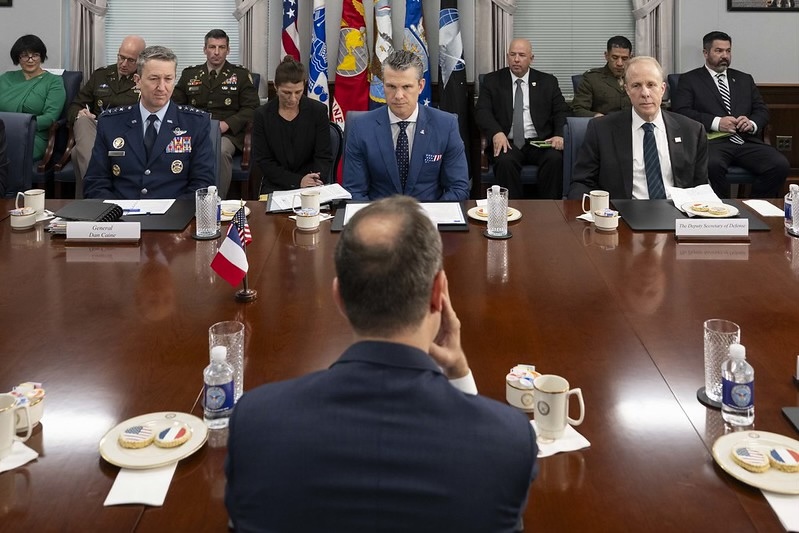WASHINGTON – As the State Department unveiled its plans Tuesday for a slimmer budget and staff cut, the Trump administration made clear it prioritized Pentagon funding over diplomacy.
The State Department’s comprehensive reorganization plan called for deep cuts to funding and staff. By contrast, the Trump administration pledged to produce the largest defense budget ever.
“I think that the broad problem for U.S. policy in the months and years to come is bringing its policy into solvency, which is a term that Walter Lippmann drew up,” Justin Logan said, director of defense and foreign policy at the Cato Institute. “Which is to say having your commitments and your resources not just in alignment, but having a comfortable margin of extra resources, sort of cushion, for the commitments.”
In its goal to shrink the federal government, the Trump administration opted for defense over diplomacy, promising to increase spending on weapons, ships, aircraft and more; and authorizing the U.S. Army to patrol along parts of the southern border with the intent to detain migrants. Meanwhile, the State Department under secretaries were tasked with 15% reductions across the board.
“The broad problem we have is that we have a proliferation of commitments and a shortage of resources,” Logan said. “And I think that the Trump administration has its own particular view about the military on the southern border, etcetera. That’s another commitment, and those resources are going to have to come from somewhere.”
For instance, last week the Interior Department, at the military’s request, gave the Pentagon control of more than a hundred acres of land along the border with Mexico.
“The deployments on the southern border are beginning to put strain on places like Europe,” Logan said. “Those rotations are beginning to pose zero sum trade offs with deployments in places like Europe.”
Hegseth has pledged a record-breaking trillion dollar budget. Hegseth said he would focus that money on “lethality and readiness,” heavily focusing on weapons, ships and aircraft.
Also as of last week, the Army had deployed around 10,000 soldiers to the southern border and Secretary Pete Hegseth met with French Armed Forces Minister Sébastien Lecornu to push European allies to increase their defense budget. Both actions underscore the administration’s commitment to prioritizing domestic security while demanding that U.S. allies shoulder more of the financial and strategic burden for global defense
“[It was an] excellent meeting today with my French counterpart,” Hegseth said in a Department of Defense press release. “We discussed the imperative need for Europeans to meet a 5% defense spending commitment to restore deterrence with ready, lethal conventional forces.”
Trump officials said by prioritizing military spending over diplomacy, the president was making good on his pledge to put “America First.”
This agenda is supported by Secretary of State Marco Rubio’s announcement of the department’s comprehensive reorganization.
“This approach will empower the department from the ground up, from the bureaus to the embassies; region specific functions will be consolidated to increase functionality. Redundant offices will be removed, and non statutory programs that are misaligned with America’s core national interests will cease to exist,” State Department Spokesperson Tammy Bruce said in a press briefing. “Under President Trump’s leadership, we have a commander in chief committed to putting America and Americans first.”

